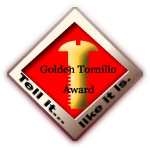|
 |
Bu-lat-lat (boo-lat-lat) verb: to
search, probe, investigate, inquire; to unearth facts
Vol. V, No.
20
June 26 - July 2, 2005 Quezon City, Philippines |
|
|
 
HOME
ARCHIVE
CONTACT
RESOURCES
ABOUT BULATLAT
www.bulatlat.com
www.bulatlat.net
www.bulatlat.org
|
|
|
READER FEEDBACK
(We encourage readers to dialogue with us.
Email us
your letters complaints, corrections, clarifications, etc.)
|
|
|
|
|
|
|
DEMOCRATIC SPACE
(Email us your
letters statements, press releases, manifestos, etc.) |
|
|
|
|
|
For
turning the screws on hot issues, Bulatlat has been awarded
the Golden Tornillo Award. 
Iskandalo
Cafe
|
|
|
|
Copyright 2004 Bulatlat
bulatlat@gmail.com |
|
|
| |
|
|
alternative reader
Opinion
THE OTHER VIEW
Revolutionary Government
By ELMER A. ORDOŃEZ
Posted by Bulatlat
Francisco Nemenzo Jr., former president of the University of the
Philippines, has said at a Diliman forum that the alternative to the
present administration—facing a crisis of confidence—is a revolutionary
government.
Francisco Nemenzo Jr., former president of the University of the
Philippines, has said at a Diliman forum that the alternative to the
present administration—facing a crisis of confidence—is a revolutionary
government. He, in effect, says that any electoral change of government
within the present framework would lead only to the continuation of the
rule of the elites.
The last time we had a "revolutionary government" was after EDSA in 1986,
with the downfall of the dictator and the swearing in of Corazon C. Aquino
as president. The government was authoritarian: the Batasan Pambansa was
abolished, and local government heads were appointed. She named a
fifty-member Constitutional Commission to draft a charter to be ratified
in a public referendum. President Aquino seemed to have full powers to
correct the basic ills of Philippine society. But she didn't or couldn't
exercise them.
Surrounding her were traditional politicians ("trapos") and another set of
oligarchs. Her defense secretary (briefly hailed as an EDSA hero) was one
of those who enforced martial law. So did her military chief of staff who
served as PC chief under Marcos (also hailed as a hero at EDSA). Intact
was the repressive apparatus of the Marcos regime.
Other members of Aquino's Cabinet included those perceived to be close to
big business and American circles. Her close-in staffers were human-rights
lawyers who had progressive ideas about governance (like having a fellow
human rights lawyer appointed as labor secretary but who was immediately
painted as a communist and subsequently fired by Aquino under pressure).
In the long run the "revolutionary government" could not prevail over the
powerful interests of a US-backed military and a conservative business
sector.
Until the election of a new Congress under the 1987 Constitution, the
period of the revolutionary government was anything but revolutionary. The
period before and after was marked by coups, and the repressive executive
orders issued by Marcos were not repealed. But happy days were here again
for the "trapos" and new oligarchs. Reports of graft and corruption came
from practically all branches of government. Patronage politics became the
norm. Human-rights violations continued unabated and new massacres of
peasants took place (in Lupao and Mendiola).
Plunder and corruption had no letup until they came to a head during the
term of Estrada, now being tried by Sandiganbayan. Another People Power
uprising took place in EDSA, with the vice president taking over. Now the
President is embroiled in allegations of electoral fraud and illegitimacy
and members of the First Family are said to be involved in jueteng
scandals.
Now people are thinking about a snap (special election) or a transition
council (junta) to take place if the President does not survive this
crisis of people's confidence. A special election for sure will not
produce a revolutionary government but more of the same. A transition
council (with members from the right, middle and left with conflicting
interests) will also not produce a revolutionary government if, by this,
we mean an administration to effect radical social change. Maybe, a few
reforms.
The bourgeois-led revolutions like the French (1789-99) and the
Philippines (in 1896-98) succeeded in toppling the absolute monarchy and
ending monastic rule but new elites took over. In the Philippines another
colonial ruler co-opting the native elites intervened. The broad masses
continue to live in poverty and servitude. Not much has changed since
independence in 1946. The local ruling class became the surrogates of the
former colonizers. No Philippine president has won without US support. Any
president who strays off the US path of interests is eventually given the
boot.
Cuba's history runs almost parallel to that of the Philippines. A former
colony of Spain, Cuba gained its independence at the turn of the century
while the Philippines had to fight off US interlopers. Independent Cuba
was unable to shed its feudal society and became the playground of
gambling casino owners and drug and vice lords until the Cuban people led
by Fidel Castro managed to throw the rascals out and install a socialist
regime in 1961. The US continues to harass Cuba with trade embargo and
attacks by CIA-backed Cuban exiles. And the Philippines?
So, what does ex-UP head Dodong Nemenzo have in mind for a revolutionary
government? Under what concrete conditions? How will it be formed? By whom
and for whom? Who are its enemies and who are its friends? The idea
deserves another forum. Posted by Bulatlat
Back
to Alternative Reader Index
BACK TO
TOP ■
COMMENT
© 2004 Bulatlat
■
Alipato Publications
Permission is granted to reprint or redistribute this article, provided
its author/s and Bulatlat are properly credited and notified.
|
| |
|
|